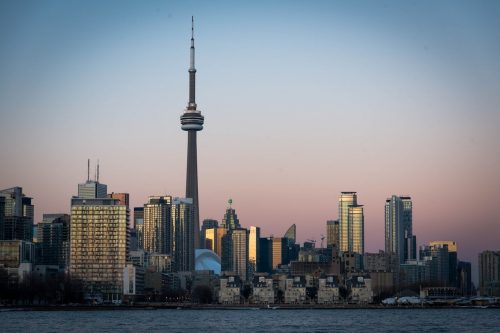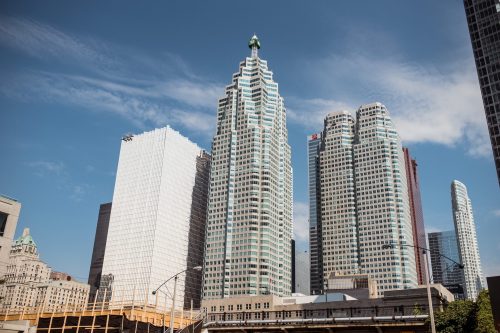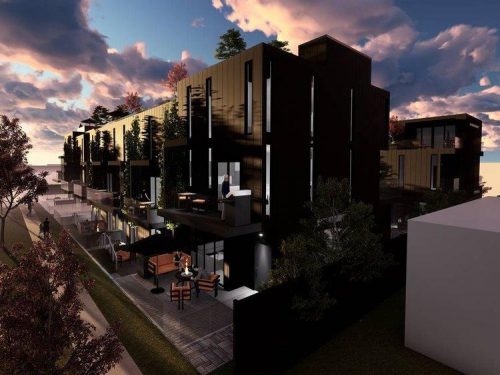The Toronto Housing crisis is putting a strain on residents’ living conditions while also threatening the city’s potential for growth. It’s normal to have burning questions like how did it begin? What caused it? And what can be done to fix it? In this article, our team of experts answers all these questions and more.
Toronto Housing Crisis

The housing crisis in Toronto is fueled by the fact that demand exceeds supply by a wide margin. Individuals looking for employment and career opportunities are relocating to the city, but housing unit inventory has remained abysmal.
Naturally, property owners capitalize on this imbalance to maximize their profits. Renovations and rent hikes are expected, with some buildings charging up to $1000 more per month for some condos in Mississauga.
Rent prices have also spiked in the wake of the Covid-19 pandemic, even as many people became temporarily unemployed. At the current rate, affordable condos and townhomes in Toronto may be exhausted.
Current Housing Situation in Toronto
The current housing situation has many people unable to afford their existing homes or finds new condos or homes in Etobicoke within their price range.

The market also has very few single-family listings. And with these being the most desirable of the bunch, market demand has continued to drive prices higher.
Contributing Factors
Demand for Listings
The lack of new homes is at the core of the Toronto housing crisis. The problem stems from the shortage of affordable accommodations. In 2018, the average rent of a unit in greater Toronto was about $1,400. This has grown to $2,385 in 2021. However, the average annual salary in the city has hovered at about $63,000.
The housing supply hasn’t seen the same growth. Our team of experts estimate that affordable buildings’ construction has dropped by 25%, relative to previous levels. The current supply is stretched to its limits, and there’s no shortage of complaints online and offline.

The Facebook group “Toronto Housing Woes” was created as an outlet for city dwellers. Its phenomenal growth is a testament to the problem: there simply aren’t enough housing units to go around.
Shortage of Rental Housing
Many individuals find it challenging to maintain their current accommodations, and a lack of access to rental properties makes it even worse. One apartment viewing in 2019 was reported to have over 4,000 interested parties, even though there were only 75 available units. It’s also tough to get community housing, as the estimated waiting time is about five years.
A report on the housing market also highlights why the shortage is so severe. It is estimated that up to 70% of household income is required to cover some Toronto homes’ ownership costs.

This traps residents in a vicious cycle where they can barely afford their current homes but can’t find more affordable alternatives.
Influx of Population
Toronto’s population is estimated to have grown by over 500,000 people in the past decade. The central city is known for its numerous opportunities, having created more than 325,000 jobs within the past three years. Unsurprisingly, it has continued to attract young and ambitious talent.
Lack of New Homes
Population growth isn’t harmful in itself. It’s actually a catalyst for growth in many instances, but only if residents actually have a place to reside. Over the past few years, it’s estimated that only 5,500 new units were completed for middle-income earners. Developers are, instead, more focused on building high-end units for upper-class residents.
Possible Remedies
Increasing the number of affordable housing plans
The apparent solution to Toronto’s housing crisis is for the government to step in and build affordable units. The gap between demand and supply fuels the situation, increasing supply will lower rent prices while also making more units available.

The solution isn’t as easy as it may seem. Estimates suggest that 50,000 units need to be provided yearly to meet up with the city’s growing population. Additionally, directing resources from other city projects like repairs and maintenance may also affect the housing market.
If this occurs, demand for units in the neglected areas will fall as dwellers look to more upscale neighbourhoods, leading to more of the same problem. The best approach, therefore, may be a combination of various tactics.
Mixed-income neighbourhoods
The concentration of affordable and desirable condos and housing in North York and in some parts of the city also contributes to the problem. Toronto, like many other metropolitan cities, has poverty concentration points. Improving the infrastructure in these parts can increase the number of mixed-income neighbourhoods in the city.

Besides providing more accommodation, this approach could also make life easier for residents. Some city dwellers work low-income jobs in areas that they can’t afford to live. So in addition to rising costs of living, they have to make long commutes to work each day. A mixed-income neighbourhood could fix that.
Community-owned projects
Our team of experts found that some pundits also propose to take some pieces of land and properties off the speculative market. Instead, they should be transferred to community ownership, where they are treated as non-profits.
The rents can be directed towards improving the living conditions of residents, like maintenance and rent subsidies. Community projects would be affordable and surplus enough to accommodate numerous residents at the same time.
What Will Happen Next?
Projections show that Toronto’s population will continue to increase in the coming years, leaving the city with two potential outcomes.

The first is that affordable housing units in Toronto are built to cater to the rising demand without ignoring critical infrastructure and other city needs. On the other hand, housing prices could continue to rise as the government neglects the people’s needs.
The actual outcome may be difficult to predict, but it will significantly impact the lives of residents in Toronto and Canada [1] as a whole.
FAQ
Is the Toronto housing market going to crash?
The Toronto housing market isn’t a speculative bubble, so it’s unlikely to crash. The market is in a crisis mainly because the demand for affordable housing outweighs the current supply.
Conclusion
The Toronto housing crisis has placed significant stress on capital city residents. The increase in population, coupled with insufficient construction of new units, has made affordable housing scarce. Building new homes may be the way to go, but the government has a significant role in its implementation.
For related pages, you can visit the following, as well:






